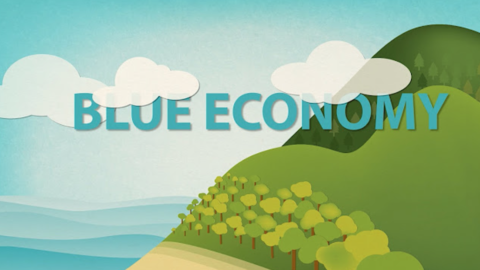According to the UN Conference on Trade and Development (UNCTAD), the global economy, food security, and energy supply are increasingly threatened by vulnerabilities in key maritime routes.
The 2024 UNCTAD Review of Maritime Transport reveals that critical maritime passages—such as the Panama Canal (linking the Pacific and Atlantic Oceans), the Red Sea and Suez Canal (connecting the Mediterranean Sea to the Indian Ocean via the Arabian Peninsula), and the Black Sea (a major hub for grain exports)—are under significant strain.
However, the report indicates that maritime trade, which increased by 2.4% in 2023 to reach 12.292 million tons, has begun to recover after a contraction in 2022. It is expected to achieve modest growth of 2% in 2024.
Uncertain Future
This growth is driven by demand for bulk commodities such as iron ore, coal, and grains, as well as containerized goods, with an average annual growth rate of 2.4% projected for the period 2025-2029.
Nonetheless, “the future remains uncertain,” UNCTAD stated in a press release.
These figures, however, mask deeper challenges. Container trade, which only grew by 0.3% in 2023, is expected to rebound by 3.5% in 2024, but long-term growth will depend on how the industry adapts to current disruptions, such as the war in Ukraine and rising geopolitical tensions in the Middle East (Gaza and Lebanon).
Significant Disruptions at Key Maritime Bottlenecks
Major maritime routes have faced significant disruptions, resulting in delays, ship reroutings, and increased costs.
Traffic through the Panama Canal and Suez Canal, essential arteries of global trade, has fallen by over 50% by mid-2024 compared to their peaks. This decline is attributed to low water levels in the Panama Canal due to dry weather and the conflict affecting the Red Sea region, which has impacted the Suez Canal.
At the same time, the tonnage of vessels transiting the Gulf of Aden and the Suez Canal has decreased by 76% and 70%, respectively, compared to the end of 2023.
Furthermore, rerouting cargo around the Cape of Good Hope has surged to maintain the flow of goods, significantly increasing costs, delays, and carbon emissions, according to the UN. These longer routes have also resulted in heightened port congestion, fuel consumption, crew wages, insurance premiums, and piracy risks.
Longer Routes, Higher Costs
These longer routes have led to increased port congestion, fuel consumption, crew wages, insurance premiums, and piracy risks.
By mid-2024, the rerouting of vessels from the Red Sea and the Panama Canal had increased global demand for ships by 3% and demand for container ships by 12%, compared to what it would have been without these disruptions. This situation has exerted considerable pressure on global logistics and strained supply chains.
Port hubs such as Singapore and major Mediterranean ports are now under pressure as they face growing demand for transshipment services due to vessel rerouting. The congestion at these ports adds complexity to global transport and trade networks.
The report indicates that if the crisis affecting maritime navigation in the Red Sea and the drought reducing water levels in the Panama Canal continues, global consumer prices could rise by 0.6% by 2025.
Impact of the Red Sea Crisis on Africa
On the African continent, these attacks in the Red Sea have prompted many vessels to avoid the Suez Canal and route around the Cape of Good Hope.
This rerouting of ships, which has increased congestion in South African ports, has also created opportunities for countries like Madagascar, Mauritius, Namibia, and Tanzania. These countries are strategically located on maritime routes connecting Asia to Europe.
Several East African countries, whose foreign trade heavily relies on the Suez Canal—about 31% and 34% in volume for Djibouti and Sudan, respectively—are feeling the effects of these disruptions. For example, East Africa has experienced shortages of perishable goods and standard containers due to longer delivery times. This has impacted the supply chains for avocados, tea, and coffee.
Source: news un




